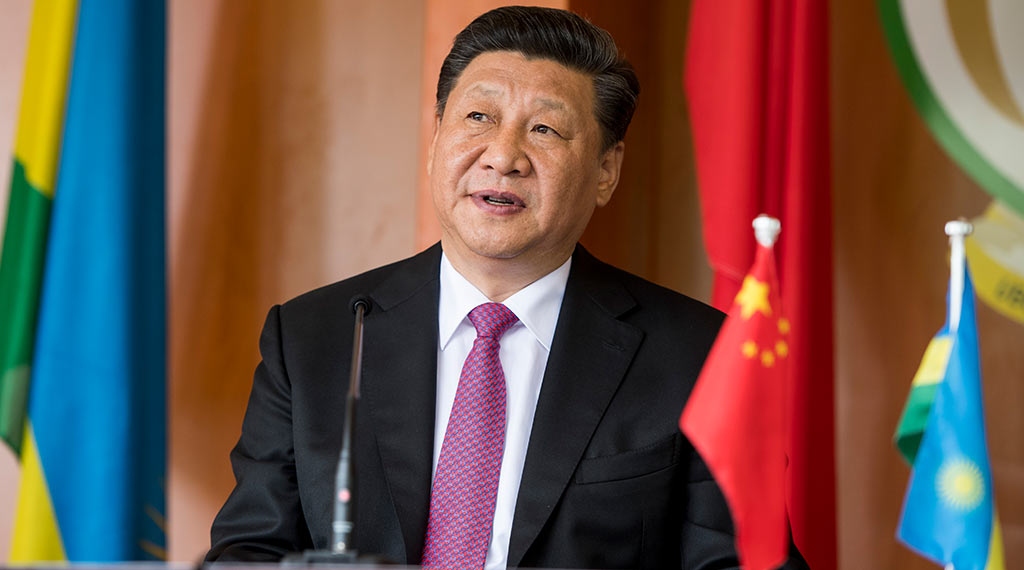
From Mao Zedong’s early support for the Palestinian Liberation Organization, the People’s Republic of China has long supported the Palestinians. In June, Palestinian Authority President Mahmoud Abbas visited Beijing, where he was warmly welcomed by Chinese Communist Party (CCP) leader Xi Jinping. The two leaders issued a statement rejecting the West’s human rights ideology, and although Abbas has said that Hamas does not represent the Palestinian people, now the meaning behind his visit to China perhaps has become clear: China will use the Israel-Hamas war to support its national agenda of displacing the United States as a global power.
China is, in fact, a tacit supporter of Hamas, and the Palestinians more broadly, as well as a supporter of Iran. This should compel the Biden administration, and the world, to ask what China’s objectives might be with the war, beyond supporting Hamas. We can group those objectives as regional — in the Middle East — or global, but neither grouping can be separated from the cold war that exists between China and the United States. The intense security competition between both powers means that a win for China, whether actual or perceived, is a loss for the United States.
Regionally, it is salient that China’s foreign minister called for a ceasefire now, before Hamas has been attrited by the expected Israeli ground offensive in Gaza. Given that Israel is the strongest Middle Eastern ally of the U.S., it should come as no surprise that China wants to hinder Israel’s ability to defeat Hamas. Although China this summer had invited Israeli Prime Minister Benjamin Netanyahu to visit later this month, with war now underway, China would consider any blow to Israel to be a blow to the United States as well.
Until Hamas’s attack on Oct. 7, Israel was on a course of improving its relations with Arab states; the war is certain to derail this. Under the Abraham Accords, Israel had established relations with Bahrain, Morocco, Sudan and the United Arab Emirates, and the U.S. has been working on an agreement to normalize relations between Israel and Saudi Arabia.
Since Israel’s improved relations with Sunni Arab states reflects a Middle East that is supportive of and conducive to U.S. interests, it’s a win for China if the Accords can be weakened — and it makes China’s efforts to exert influence in the Middle East more likely, such as with its March 2023 brokering of diplomatic relations between Saudi Arabia and Iran. Perhaps most important to Beijing, if the war escalates beyond Gaza, to include Hezbollah in Lebanon and other actors, then it is probable that U.S. involvement will intensify, and that could hinder Washington’s ability to respond to other contingencies.
Beyond the Middle East, when global consequences are considered, the present war taxes the U.S. but could aid China. There is, of course, the question of the U.S. capacity to offer security assistance to both Israel and Ukraine, for its war with Russia, and there is the acute danger of the Israel-Hamas war escalating to other parts of the Middle East and southwest Asia. A regional war in Europe and one in the Middle East would stress the U.S. National Security Council and intelligence community in ways that have not happened for a generation. There is the concern that China will use the opportunity presented by new military and economic demands placed on the United States to move against Taiwan, the Philippines or other targets, such as Guam or even the U.S. homeland.
As U.S. attention pivots back to the Middle East, the threat to Taiwan’s independence is heightened. Even before the Israel-Hamas war, Taiwan faced great risk; China had begun routine air and maritime violations of Taiwan’s sovereignty and, by most indicators, appears to be preparing for an attack on the island nation. Any change to U.S. capabilities in the Western Pacific, along with the preoccupation of the U.S. intelligence community, could make a successful surprise attack against Taiwan more likely.
Russia also knows that it has a window of opportunity — and is likely to exploit it. Russia will use the Israel-Hamas war to heighten its aggression against Ukraine, with Beijing’s support, especially since Ukraine rightly fears that the support it receives from the West soon may be lessening.
The U.S. should recognize that it is not at the end of its crises. It should expect that North Korea also will act to generate a crisis on the Korean peninsula, in anticipation of China’s aggression against Taiwan, perhaps India, or a U.S. ally such as Japan or the Philippines.
Domestically, Xi can use the war to accelerate his purging of the CCP and the military, and to continue his crackdown on human rights in China with far less concern that the Biden administration will respond effectively.
President Kagame and President Xi Jinping of China Joint Press Conference by Paul Kagame is licensed under CC BY-NC-ND 2.0
- Victory over the PRC: Why engagement makes war with Beijing more likely - April 24, 2024
- The US must end engagement (and Biden’s neo-Engagement) with the PRC now - April 10, 2024
- How to address the CCP threat: Engagement, defeatism, or victory - April 3, 2024
